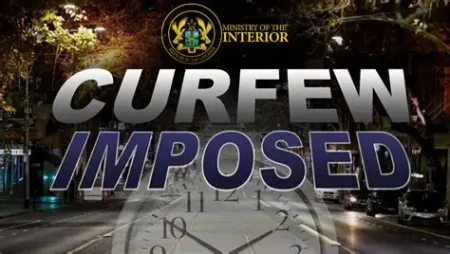This case details the legal proceedings and sentencing of Emmanuel Aboku, a 28-year-old driver, for the theft of a motorbike in Asesewa, Eastern Region, Ghana. Aboku’s actions, captured on CCTV footage, led to his arrest and subsequent conviction in the Odumase-Krobo Circuit Court. The incident began when Albert Nahi, a 56-year-old farmer, parked his Haojue motorbike, valued at GH¢17,000, at a filling station in Asesewa before traveling to Accra. Upon his return, Mr. Nahi discovered his motorbike missing, prompting him to report the theft to the police. The subsequent investigation, aided by CCTV footage from the filling station, quickly identified Aboku as the perpetrator.
The investigation, spearheaded by Chief Inspector John Brahene, utilized the CCTV footage from the Star Oil Filling Station where Mr. Nahi had parked his motorbike. This footage clearly implicated Aboku in the theft, providing crucial evidence for the prosecution. Following the identification, a manhunt was initiated, culminating in Aboku’s arrest on August 16, 2025, in Asesewa. During the interrogation, Aboku confessed to the crime in the presence of an independent witness, further solidifying his guilt. He then cooperated with investigators, leading them to Anyesu Village, where the stolen motorbike was recovered.
Upon his apprehension and confession, Aboku was formally charged with stealing, a violation of Section 124(1) of the Criminal Offences Act, 1960 (Act 29). He was subsequently arraigned before the Odumase-Krobo Circuit Court. The court, after considering the evidence presented by the prosecution, including Aboku’s confession and the recovery of the stolen motorbike, found him guilty of the charge. The court then proceeded to sentence Aboku to six years’ imprisonment.
The six-year prison sentence handed down to Aboku by the Odumase-Krobo Circuit Court serves a dual purpose. Firstly, it acts as punishment for his criminal act of stealing Mr. Nahi’s motorbike. Secondly, and perhaps more importantly, the court intends for the sentence to act as a deterrent. This is specifically aimed at discouraging others within the Krobo enclave from engaging in similar criminal activities. The court’s decision underscores the seriousness with which motorbike theft, and property theft in general, are viewed within the region.
This case highlights the effectiveness of utilizing modern technology, such as CCTV surveillance, in criminal investigations. The footage obtained from the filling station played a pivotal role in identifying and apprehending the culprit, demonstrating its value in maintaining law and order. It also underscores the importance of prompt reporting of crimes to the authorities, enabling swift investigations and, as in this case, the recovery of stolen property.
In conclusion, the conviction and sentencing of Emmanuel Aboku represent a successful application of the justice system in addressing a prevalent crime. The use of CCTV footage, the subsequent investigation, and the court’s firm stance against theft all contribute to creating a safer environment and deterring potential offenders within the Krobo enclave and beyond. This case serves as a reminder of the consequences of engaging in criminal activity and reinforces the community’s commitment to upholding the law.














